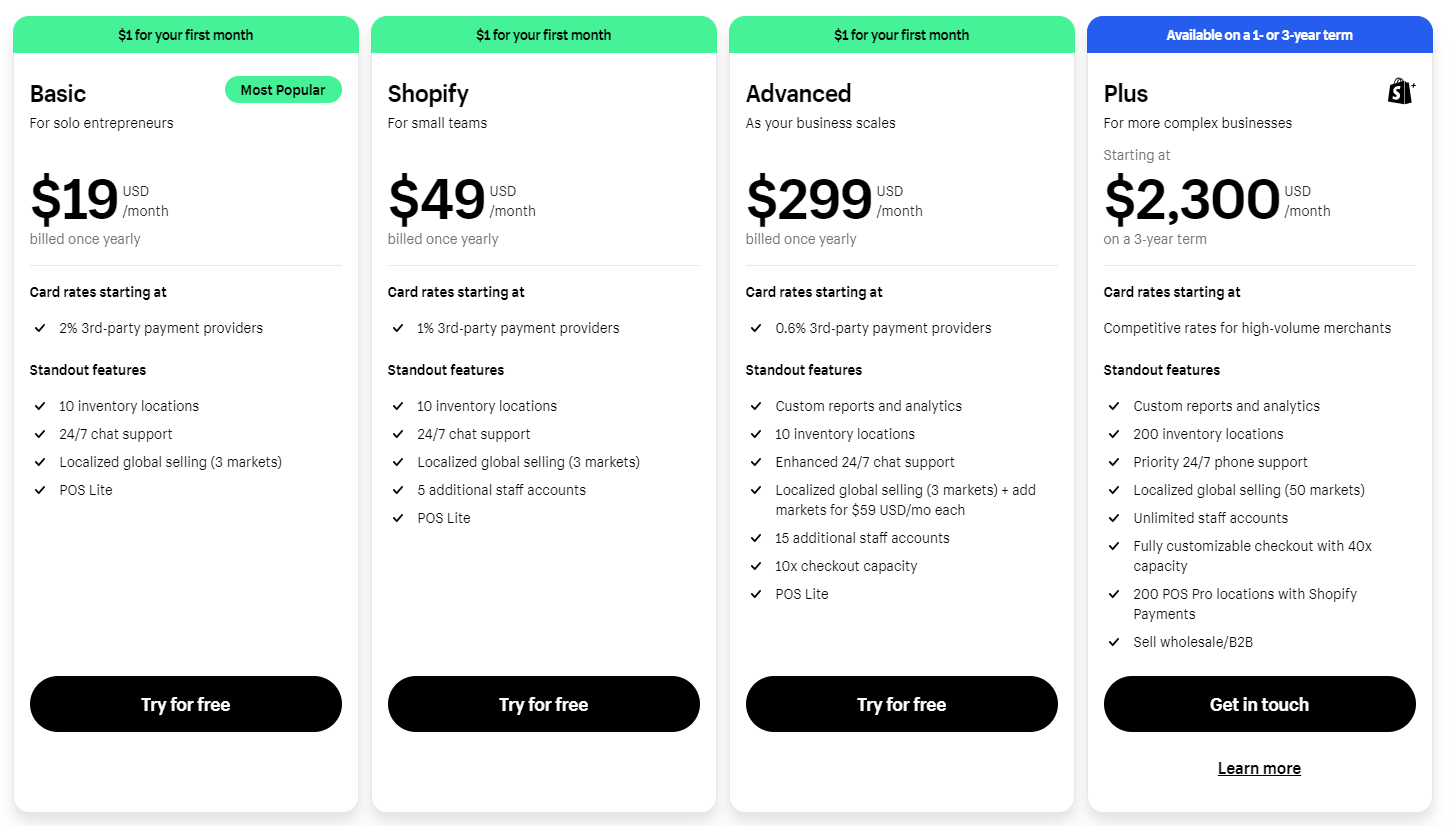So you’re in the process of finding a bookkeeper. You need someone to handle your books, but you don’t know what you should look for in a bookkeeper. Fear not friend, we’ve got you covered. Here are some of the most helpful tips to keep in mind when looking for a bookkeeper.
1. Related Experience and Organizational Skills Are Necessary
When finding a bookkeeper, it’s important to dig into candidates’ work history and experience in the industry. Have they worked with eCommerce businesses and clients in the past? Are they familiar with the systems and processes involved?
Good organization is the foundation of accurate reporting. Your bookkeeper should have an efficient system in place for interpreting data, preparing reports, and storing files. The longer they’ve worked in the industry, the more likely they are to have an established, effective process in place. This will improve their work efficiency and your company’s profitability.
When finding a bookkeeper, you may want someone who keeps digital financial records on the cloud instead of paper. This can save valuable time and can allow them to help you more effectively achieve your business goals. They can research helpful financial tactics, thoroughly analyze your account, and point out areas of growth or opportunity.
It is paramount that your bookkeeper be extremely detail-oriented. They will be dealing with the figures you use to make critical financial decisions. A bookkeeper who is familiar with your business’s operations will be able to spot patterns in your financial records and help you avoid mistakes.
Make sure to also ask about your accountant’s review policy and what safeguards they have in place to catch numerical errors.
2. Communication Skills and Attitude

One of the first things you need to consider when finding a bookkeeper is whether or not they speak the same language as you. You can’t stop there, though. You also need to examine how they communicate information. How effective are they at explaining issues they may run into? Are they clear? Can they convey insights about your books that you can easily digest and understand? Do they use jargon heavily? Are they able to simplify terms for you?
Ask them how they communicate with their other clients. What methods do they use? (Email, text, calls, etc.) What platforms or apps do they use to stay organized? (Slack, Telegram, Trello, Loom, etc.) Are they familiar with the platforms you and your team use? Do their methods fit with the way your team is organized?
Having the same communication styles makes things a whole lot easier. Make sure that the person you hire to be your bookkeeper is flexible enough to adapt to your preferred communication style.
3. Set Up Training and SOPs
Whether you realize it or not, you already have accounting policies and processes in place. However, they are most likely not what they should be. Policies and procedures are the rules that govern how bookkeeping and accounting are handled in your company. This includes how things are posted, when invoices are paid, when the monthly books are closed, who evaluates what and when, and so on.
It is critical that, regardless of the bookkeeping solution you use, you establish at least a few basic rules. If you are a nonprofit or have certain types of government loans, you may be required to follow loan, grant, and fundraising regulations and procedures. The bookkeeping solution you choose should be capable of guiding and directing you in the establishment of policies and procedures. When finding a bookkeeper, you need to make sure they are knowledgeable enough to follow these guidelines.
If you don’t already have systems in place that work for you, make sure your bookkeeper can help you set them up and transfer your documents.
We talk about some of the top bookkeeping services for online businesses, if you’re interested in knowing more.
4. Shares the Same Values

If a core value of your business is close working relationships, your bookkeeper should get used to frequent updates, check-ins, and calls with you and with other team members. If quick turnaround times are important to you, your bookkeeper needs to be able to get the work done as fast as possible.
Whatever your core values may be, you need to clearly lay them out when hiring. You need to set these values, detail them when job posting, and relay them during the interview process.
Their values need to align with the values you set. Otherwise, they likely will not be much help to you in achieving your goals for the business. If you want to bake an apple pie, you need someone willing to follow your recipe or even improve upon it.
These values can determine how smoothly they work within your team, and how they value working relationships.
5. Culture Fit
Just like your values, your company culture is an important element. Finding a bookkeeper is just as much about looking for culture fit as it is about skills and experience.
When you recruit for the position, watch out for signs that candidates would fit into the cultural environment that you have created. You need to hire only people who will at least adjust to the culture. Better yet, go for people who will foster that culture and grow it and even build on it to make it more amazing.
Culture is important because a job is more than work. The best people to work with are those who find meaning in the work. This is more likely to happen when they fit into the culture. Being in sync with the culture all on its own is also a vital aspect to ensuring that you are getting peak performance from your hires.
6. Sense of Responsibility, Initiative and Ownership

Accountability is very important. A competent bookkeeper maintains orderly records that are simple for you to study and query. Do your research and request reference checks from accountants who have worked with your bookkeeper on other projects.
During the interview process, you can also get a feel for their character, reliability, and trustworthiness. Ask questions about scenarios where they have had to deal with dishonesty in their previous work and how they handled that situation. Ask them how they handle errors in their own work and how they come up with a solution. Questions of this nature are good dousing rods for figuring out the personality and character of the person you wish to hire. You also get a sense of how their mind works and how they process certain situations and problem-solve.
7. Motivated by Growth vs Money
This is one vital factor in finding a bookkeeper who is the right fit for your company. Find out early on in your interview process whether a candidate is more focused on growth or money. Any hire who chooses growth over money is going to be a more valuable member of the team. Being motivated by growth means that they do a job because it’s a job that they love. And because they love what they do, they want to get better and better at it. They will also likely want to level up to related skills and expand to related areas. This is always good for your company because they will bring these new areas in with them.
Someone who is more focused on just earning their pay is not going to grow much. If they do grow, it’s going to be minimal and most likely by accident. By this I mean that they may not be the same as when they started because someone else rubbed off on them or because it’s really hard to not grow as part of such an amazing company as yours!
All things considered, go with people who love to grow. This is an entrepreneurial trait, and working with like-minded individuals is always good for business.
8. Cost and Location
You must decide how much you want to pay your bookkeeper ahead of time. Including these details in your job posting can assist you in attracting more qualified applicants—and it may be legally required. The amount you choose will depend on the location of your company, the experience you require, whether they are contractors or employees, and the industry in which your business operates.
According to the Bureau of Labor Statistics (BLS), the annual salary of a full-time bookkeeper in 2021 was around $45,000. According to BLS data, bookkeeper salaries range from around $29,000 to more than $60,000. Although these are fairly broad ranges, they can be narrowed down based on your industry, the bookkeeper’s experience, the nuances of your business, and the location of your company.
Of course, if you consider outsourcing, you can bring your costs down considerably.
9. Credentials and Certifications

In the United States, bookkeepers are not legally mandated to acquire a license to do bookkeeping. However, they can participate in a number of voluntary certification programs if they want to. In the United States, for example, candidates who have been certified or licensed by the National Association of Certified Public Bookkeepers (NACPB) or the American Institute of Professional Bookkeepers (AIPB) generally have up-to-date knowledge and skills. When finding a bookkeeper, inquire if they have any similar certifications.
This is also true for professional affiliations. Before they can join a professional organization, bookkeepers must meet the membership criteria. As a result, professional memberships can be used to assess your candidate’s professional standing and commitment to their career.
An active membership in a professional organization also assists a bookkeeper in staying current with industry news, trends, and best practices. Additionally, members of these groups may carry professional indemnity insurance, which provides you with additional peace of mind.
While there are no licensing requirements for bookkeepers like there are for CPAs, applicants can be certified by voluntary organizations. You want a bookkeeper who stays current on relevant laws and preserves a certain level of skill.
A bookkeeper’s responsibilities and abilities may vary depending on if they are a regular or full charge bookkeeper. Either way, they should be familiar with the basics of bookkeeping such as invoicing, payroll, balance sheets, debits and credits, deferrals, etc. Ideally, they should also have experience with bookkeeping software.
Final Thoughts on Finding a Bookkeeper
We’ll end this one on a very simple note. Finding a bookkeeper who is good for your business rests mainly on their integrity, adaptability, skills, and experience.








